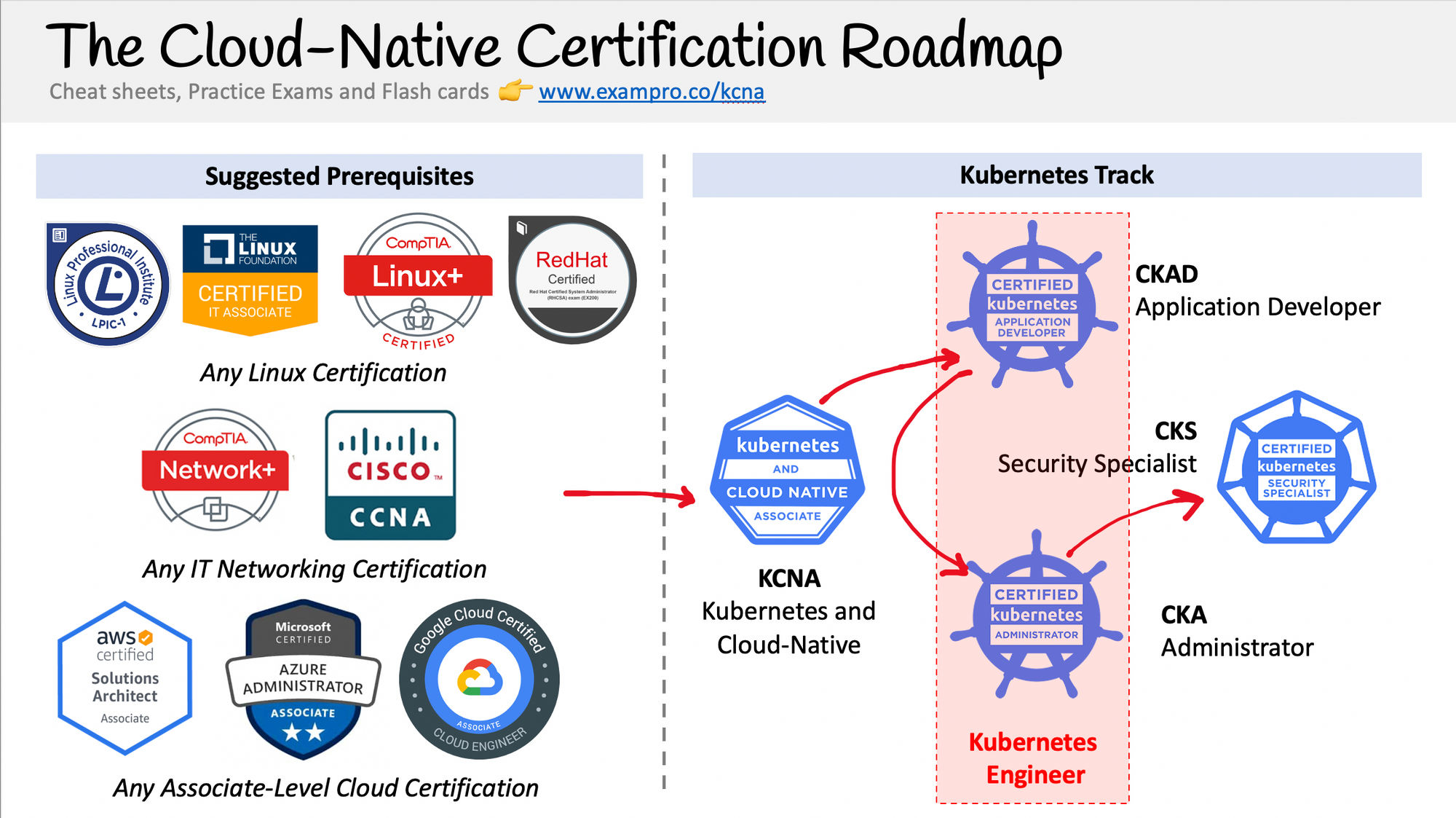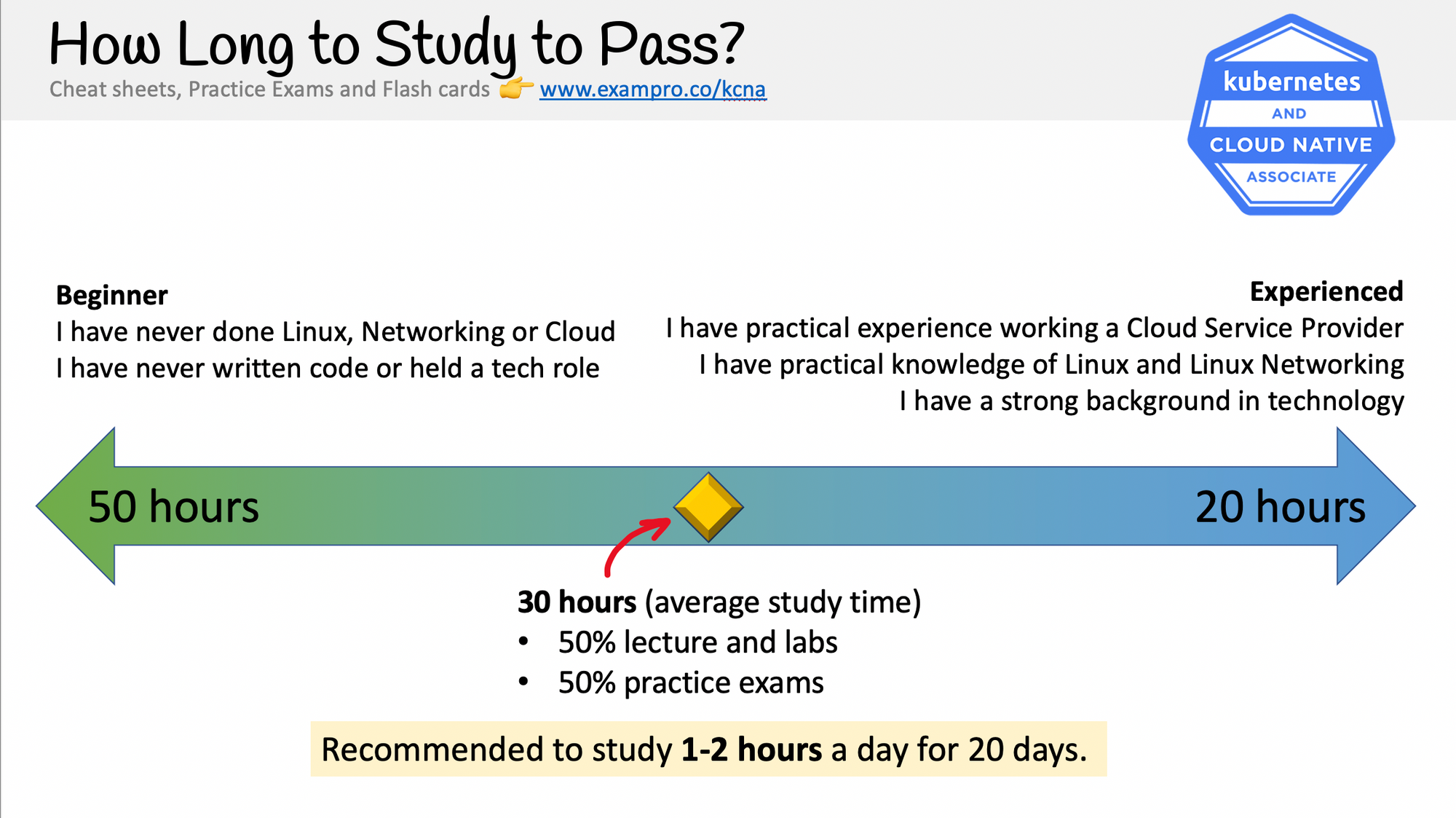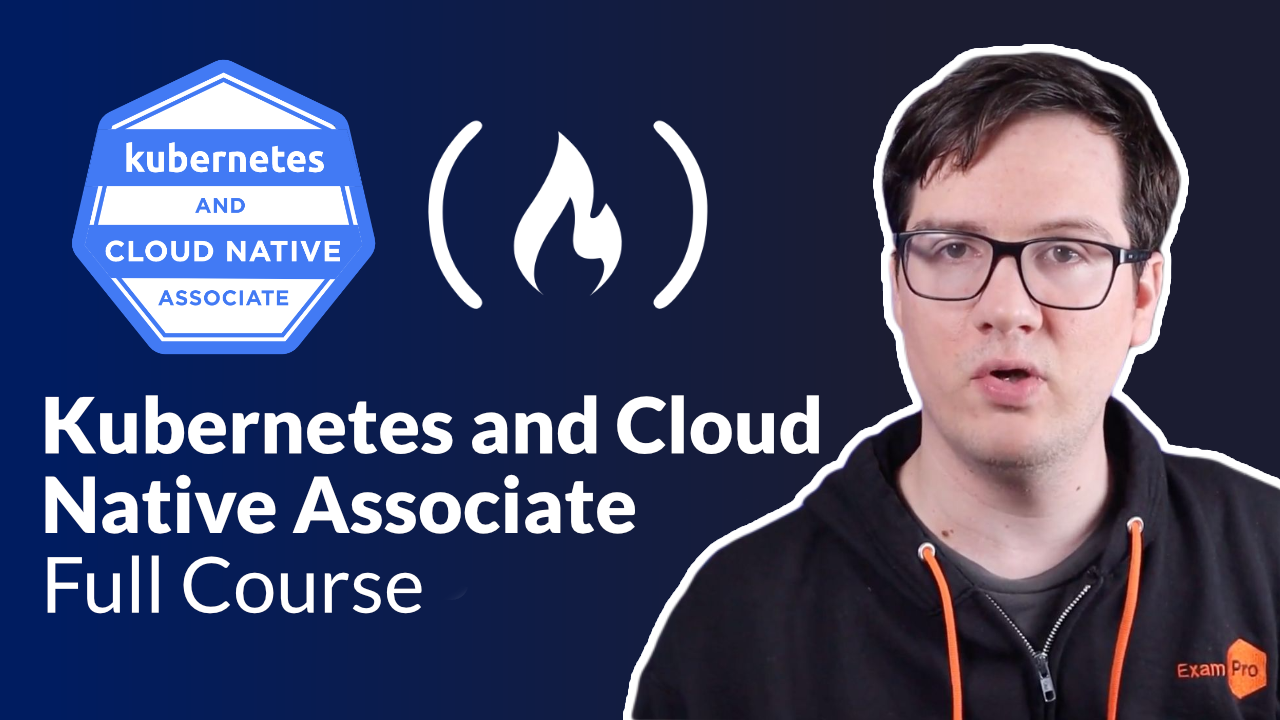This exam mostly deals with cloud-native concepts. Even if you are new to cloud-native, you should be able to prepare for this exam and earn the CNCF certification.
This entire free course is now live on YouTube, and linked below. Before you dive into it, read this guide to help you decide whether the CNCF KCNA certification is for you.
What is Kubernetes?
Kubernetes, often shortened to K8s, is an orchestration software for containerized applications in Kubernetes pods.
Kubernetes is a very popular technology because it allows an organization to deploy micro-service architecture that can be deployed into any Cloud Service Provider (CSPs). This cloud-agnostic approach allows companies technical flexibility and avoids vendor lock-in.
The trade-off of the cloud-agnostic approach is increased complexity, and as a result, Kubernetes Engineers are well paid and highly in-demand.
What is CNCF Kubernetes and Cloud-Native Associate (KNCA)?
The Cloud-Native Computing Foundation (CNCF) is the organization that maintains various cloud-native projects, which includes Kubernetes.
- The CNCF Kubernetes and Cloud-Native Associate (KCNA) is the entry-level CNCF certification teaching:
- The landscape of Cloud Native technologies
- A close look at the core Kubernetes components
- A quick look at the vast amount of CNCF projects, cloud-native tooling
- A general overview of Security, Deployment, and Monitoring
- The structure and governance of the CNCF, and the community around Cloud-Native
The course code for this certification course is KCNA and has no number in the course code indicating version.
Prior to the KCNA all that existed was the CKAD, CKA and CKS certifications, and to make it easier for most engineers to learn Kubernetes, the KCNA certification course was added.

The KCNA requires existing knowledge of Cloud, Networking and Linux, and it is strongly recommended to study these topics prior to studying the KCNA.
Overview of the KCNA
The exam contains 5 domains of questions, each with their own weighting. The weighting determines the number of questions about that domain that will appear on the exam.
- 46% Domain 1: Kubernetes Fundamentals
- 22% Domain 2: Container Orchestration
- 16% Domain 3: Container Native Architecture
- 8% Domain 4: Cloud Native Observability
- 8% Domain 5: Cloud Native Application Delivery
Can I simply watch the videos and pass the exam?
It might be possible to simply watch the videos if you are already a senior engineer. However, it's strongly recommended to follow along within your own Cloud Service Provider (CSP) account because this exam will test your practical technical knowledge like KubeCTL commands.

Other Considerations When Studying
The KCNA is composed completely of multiple-choice and multiple select while advanced exams such as the CKA, CKAD and CKS are 100% hands against a Kubernetes cluster.
So this KCNA study course includes a large amount of hands-on instructions alongside the lecture content to specifically prepare you for these more difficult exams.
How do you get Certified?
You can register for the exam on the Linux Foundation website. The CNCF is a sub-organization of the Linux Foundation.
The exam is delivered via PSI, which is a network of in-person global test centers and and an online test center.
Other details you should know:
- There are 60 questions on the exam
- The exam time is 90 minutes
- The passing score is 75%
- There are no penalties for wrong answers
- The exam-fee is $250 USD
- You get two attempts
Since you get two attempts, it is recommended to sit the exam as early as possible. While the exam is expensive, you can look around for coupons or talk to a CNCF community ambassador to see if they know of any coupons.
This course comes with a full free practice exam which you can redeem for free with no credit card by signing up on ExamPro.
ExamPro has multiple paid practice exams along with other study materials to increase your chances of passing.
Head on over to freeCodeCamp's YouTube channel to start working through the full 13-hour course.

